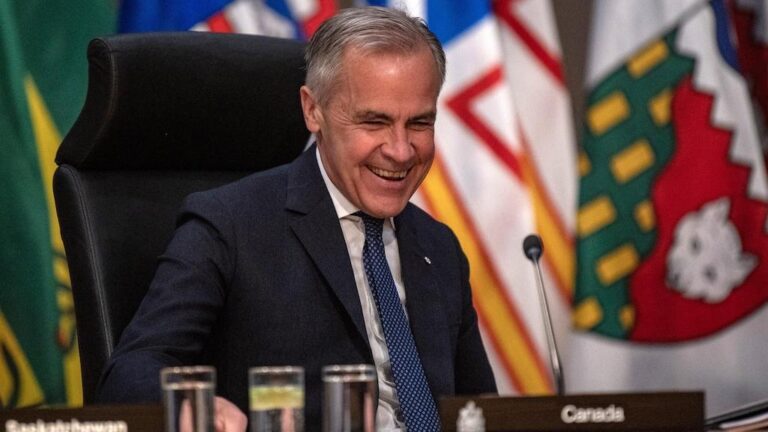Canada is on the verge of passing a major infrastructure bill aimed at revitalizing transportation, energy, and community projects across the country. However, the legislation faces significant opposition from Indigenous groups, who argue that the bill fails to adequately address their rights and concerns regarding land use and environmental protections. As the government pushes forward, tensions remain high over how the infrastructure plan will impact Indigenous territories and the promises of reconciliation.
Canada Advances Major Infrastructure Bill Amid Indigenous Opposition
Canada’s latest infrastructure bill is on the verge of approval in Parliament, aiming to inject billions into critical projects such as transportation networks, green energy initiatives, and urban development. However, the legislation faces resolute opposition from Indigenous communities who argue that it undermines their sovereignty and violates treaty rights. Key Indigenous groups have expressed concerns that large-scale construction projects may proceed without adequate consultation, threatening sacred lands and traditional ways of life.
Government officials insist that the bill incorporates provisions for environmental protection and community engagement, yet Indigenous leaders continue to demand greater involvement in decision-making processes. Among the most contentious aspects are:
- Fast-tracked approval processes reducing opportunities for consultation
- Insufficient recognition of Indigenous land claims within project zones
- Lack of guaranteed economic benefits for local Indigenous populations
| Project Type | Funding Allocation | Indigenous Consultation Status |
|---|---|---|
| Highway Expansion | $3.2B | Pending |
| Renewable Energy Plants | $2.1B | Partial |
| Public Transit | $1.8B | Under Review |
Concerns Raised Over Impact on Indigenous Lands and Rights
The proposed infrastructure bill has sparked widespread unease among Indigenous communities across Canada. Many Indigenous leaders argue that large-scale development projects outlined in the legislation threaten to encroach upon their traditional territories without adequate consultation or consent. Critics emphasize that the bill could undermine previously established land rights and exacerbate historical grievances tied to sovereignty and environmental stewardship.
Key issues raised by Indigenous groups include:
- Lack of meaningful engagement and transparency during the bill’s drafting process
- Potential disruption to sacred sites, wildlife habitats, and waterways essential to Indigenous livelihoods
- Insufficient legal safeguards to protect Indigenous jurisdiction and self-determination
- Concerns over forced displacement and cultural erosion resulting from infrastructure expansion
| Concern | Impact | Indigenous Response |
|---|---|---|
| Land Sovereignty | Legal challenges & land disputes | Calls for treaty re-evaluation |
| Environmental Protection | Risk to ecosystems & species | Mobilizing environmental assessments |
| Cultural Heritage | Loss of sacred sites | Demand for cultural impact studies |
Calls for Inclusive Consultation and Stronger Indigenous Partnerships
Indigenous leaders and advocacy groups have urgently called for a re-evaluation of the consultation processes underpinning the infrastructure bill currently advancing through Parliament. They argue that the bill, while promising economic growth and modernization, insufficiently addresses the rights and concerns of Indigenous communities directly affected by proposed projects. Key demands include transparent dialogue, respect for traditional lands, and fair sharing of economic benefits.
The push for stronger partnerships hinges on more than just formal agreements; Indigenous stakeholders emphasize the need for meaningful collaboration at every stage-from planning to implementation. The table below highlights some critical areas where Indigenous groups seek enhanced engagement:
| Key Issue | Community Concerns | Suggested Improvements |
|---|---|---|
| Land Rights | Encroachment on sacred sites | Comprehensive land impact assessments |
| Economic Benefits | Lack of job opportunities | Priority hiring and training programs |
| Environmental Protection | Risk to ecosystems | Joint environmental monitoring |
The Way Forward
As Canada moves closer to passing its ambitious infrastructure bill, the government faces mounting pressure to address the concerns raised by Indigenous communities. While proponents emphasize the potential economic benefits and modernization efforts, critics warn that insufficient consultation and respect for Indigenous rights remain significant hurdles. The unfolding debate highlights the complex balance between national development goals and the imperative of reconciliation, suggesting that the path forward will require continued dialogue and meaningful collaboration with Indigenous peoples.




